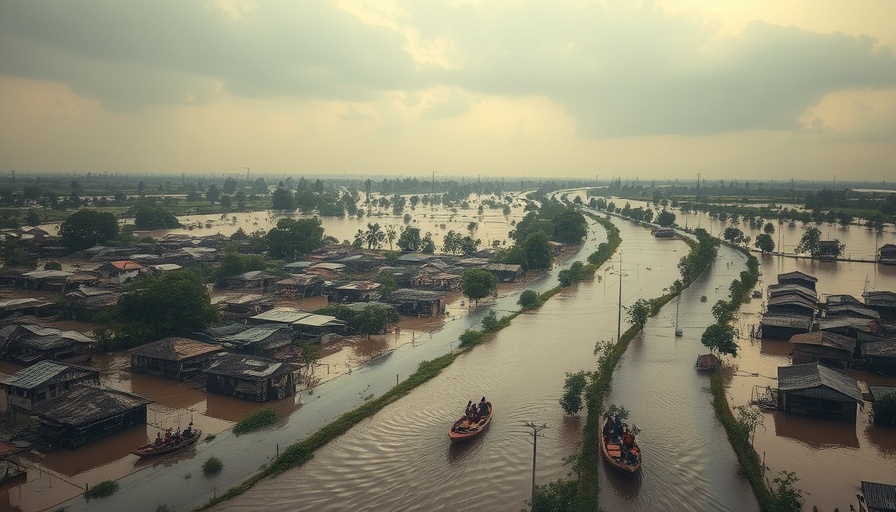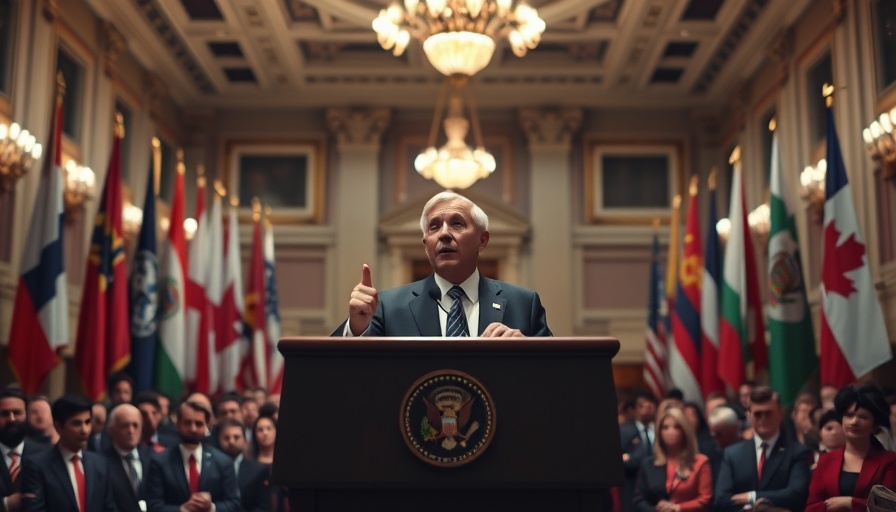
Understanding the Toll of South Asian Monsoon Flooding
The recent floods in Pakistan, which have claimed over 270 lives, highlight the severe impact of climate-related disasters in South Asia. The torrential rains, classified as moderate to heavy, have wreaked havoc across multiple provinces, with Buner in Khyber Pakhtunkhwa being one of the hardest hit areas. Not only did these rains lead to catastrophic flooding, but they also brought about landslides that have trapped numerous individuals, compounding the tragedy with missing persons' reports. With Pakistan authorities reporting that they do not require foreign aid, the question arises: how effective has the local response been in mitigating this disaster?
Shifts in Climate Patterns and Urgency of Preparedness
Experts suggest that climate change has exacerbated weather patterns in South Asia, contributing to heavier monsoon rainfall year after year. This alarming trend necessitates not only immediate disaster response but also long-term adaptation strategies. Countries like Pakistan and India are now facing increasingly unpredictable monsoon seasons, suggesting that community resilience must be prioritized. The current flooding serves as a reminder of the urgent need for investment in infrastructure that can cope with extreme weather conditions.
Responses Under Scrutiny: Are Local Authorities Enough?
Pakistan's decision to dismiss the need for international assistance raises eyebrows, given the scale of the catastrophe. Authorities claim they are prepared to handle the ongoing situation and lean on local emergency services. However, given the vast number of homes destroyed and the high death toll, experts argue that coordinated international help should not be off the table. Effective disaster response often necessitates rapid mobilization of resources, which can be challenging under the weight of local bureaucratic processes.
The Emotional Impact on Affected Communities
The flooding has left communities devastated, emotionally and physically torn. In places where homes were flattened, family members are grieving not just the loss of loved ones but also their livelihoods and homes. The psychological toll of surviving such overwhelming disasters can lead to long-term mental health challenges, necessitating comprehensive support systems for the affected.
Lessons from the Ground: Community Engagement and Resilience
In the wake of these floods, community groups have stepped up efforts to offer support and initiate recovery projects. Local NGOs have mobilized volunteers to distribute essential supplies like food and clean water, showcasing the strength of grassroots movements during crises. These community-led initiatives highlight the importance of building local capacity and resilience in the face of natural disasters.
Looking Ahead: Preparedness is Key
As the region braces for potential additional rainfall and landslides, it is crucial to reflect on how better preparedness can save lives. Governments must implement immediate safety protocols and long-term flood management plans. Collaboration between different levels of government, NGOs, and international bodies can enhance the effectiveness of disaster response systems, ensuring that when disasters strike, communities are better equipped to withstand the impacts.
Conclusion: The Path Forward After Catastrophe
The ongoing flooding crisis in Pakistan emphasizes the need for a multifaceted approach to disaster preparedness and response. Local authorities must acknowledge limitations and consider the value of international support, while communities continue to be proactive in their recovery efforts. The emotional and physical scars left by such disasters can linger. By integrating lessons learned from this tragedy, we can develop resilient frameworks for the future, enabling societies to better withstand nature's fury.
 Add Row
Add Row  Add
Add 




Write A Comment